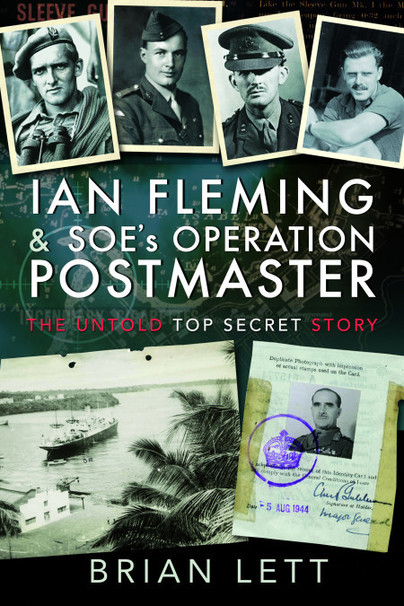Unmasking Operation Postmaster - The Daring WWII Raid that Inspired Ian Fleming

The Untold Story of Operation Postmaster
Unveiling the Daring WWII Raid on Fernando Po
Operation Postmaster was a British special operation conducted during WWII on the Spanish island of Fernando Po, now known as Bioko, off West Africa. This clandestine mission was carried out by the Small Scale Raiding Force (SSRF) and the Special Operations Executive (SOE) in 1942.
Background and Objectives
In 1942, the Spanish island of Fernando Po, located off the coast of West Africa, was a strategic location for the British to disrupt Axis powers' shipping lanes. The island's harbor, Santa Isabel, was a key refueling point for German and Italian ships. The British aimed to neutralize this advantage by capturing or destroying the island's radio station, port facilities, and ships.
Planning and Execution
The SSRF and SOE meticulously planned Operation Postmaster. A team of 55 men, led by Major Gus March-Phillipps, was transported to Fernando Po on a converted yacht, the Maid Honor Force. Under the cover of darkness, the team landed on the island, avoiding detection by Spanish and German forces.
Key Events and Outcomes
The team successfully captured the radio station, destroying communication equipment and codebooks. They seized and scuttled Axis ships in the harbor, including the German tugboat, Bibundi. The team also destroyed port facilities, including fuel stores and cranes.
Legacy and Inspiration
Operation Postmaster was a resounding success, showcasing the effectiveness of special operations in WWII. The daring raid inspired Ian Fleming, author of the James Bond series, who was involved in planning the operation. Fleming drew parallels between the real-life bravery and cunning displayed during Operation Postmaster and the fictional exploits of his iconic character, James Bond.
The Mission Objective
The Operation Postmaster mission had a clear and critical objective. The operation aimed to investigate reports of German submarines using Vichy French parts of Africa as a base for refueling. This intelligence was crucial in understanding the extent of German naval operations in the region and preventing potential threats to Allied shipping.
Infiltration and Intelligence Gathering
To achieve this objective, SSRF and SOE agents, including Richard Lippett, infiltrated the island by obtaining employment with a shipping company. This clever disguise allowed them to gather vital information about German submarine movements and activities without arousing suspicion.
Uncovering the Truth
Through their daring infiltration, the agents uncovered conclusive evidence of German submarines using the Vichy French African ports for refueling. This intelligence was instrumental in informing Allied naval strategy and preventing future German submarine operations in the region.
The Daring Raid
Operation Postmaster: A Bold Move
In the midst of World War II, the Special Operations Executive (SOE) orchestrated a daring raid that would go down in history as one of the most audacious operations of the war. Code-named Operation Postmaster, this mission showcased the SOE's ability to undertake high-stakes operations, even in the face of potential political backlash.
A Pirate's Gambit
The commandos captured three Axis ships from a neutral harbor in West Africa, disguising the operation as a pirate attack. This clever ruse allowed the SOE to achieve their objectives while avoiding diplomatic repercussions. The captured ships, which included the Italian liner Duchessa d'Aosta and the German ship Likomba, were significant prizes that would deal a blow to the Axis powers' naval capabilities.
Defying Politics
The raid demonstrated the SOE's ability to undertake operations despite political consequences. By conducting the raid in a neutral harbor, the SOE risked sparking diplomatic incidents with the host country. However, the successful execution of the operation and the capture of the Axis ships made it a significant victory for the Allies, outweighing any potential political fallout.
The Legacy of Operation Postmaster
A Literary Inspiration
Operation Postmaster, a daring WWII raid, left an indelible mark on the literary world. Renowned author Ian Fleming, involved in the mission's planning, drew inspiration from this experience. Fleming's encounters with the operation's cunning and bravery influenced his writing, particularly in the James Bond series.
Enduring Storytelling
The captivating story of Operation Postmaster has been featured in various books, articles, and films. One notable example is "The Ministry of Ungentlemanly Warfare," which highlights the operation's significance and intrigue. This testament to the operation's enduring appeal showcases its impact on popular culture.
A Lasting Impact
The legacy of Operation Postmaster extends beyond literature and entertainment. It serves as a reminder of the ingenuity, courage, and determination displayed by those involved. This operation's influence can be seen in the continued development of unconventional warfare tactics and strategies.











Comments ()